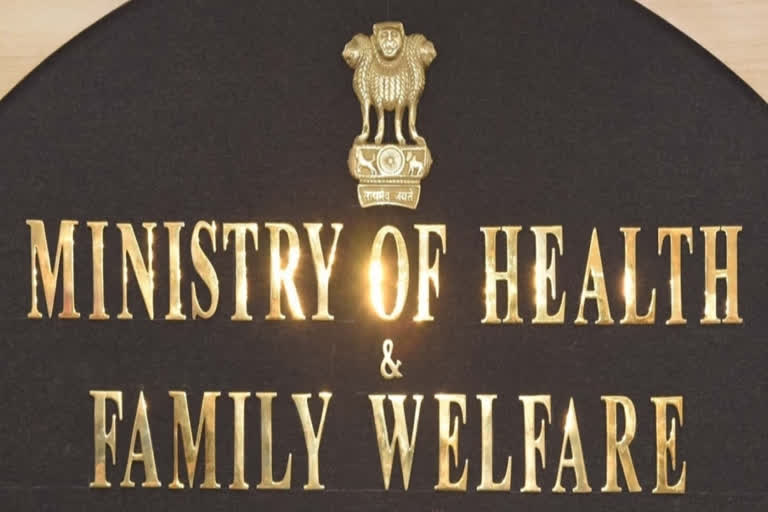New Delhi: The Union Ministry of Health and Family Welfare (MoHFW) on Thursday clarified that the "appropriate division" will provide the required support to the Indian students who have returned from Russia's invaded Ukraine.
"We were in constant touch with the Ministry of External Affairs and following the situation in Ukraine. We have relaxed the international guidelines for people coming from Ukraine and neighboring states," said Lav Agarwal, joint secretary in the health ministry.
When asked about the fate of students who left their medical education in Ukraine following its crisis with Russia, Agarwal said that an appropriate division will provide the required support. Agarwal was interacting with the media over India's present situation regarding Covid19.
Asserting that India has been witnessing a low Corona scenario, Agarwal said that due to large-scale vaccination, India was able to overcome the third wave.
"The second wave of the pandemic which took place between March 20 to July 14, 2021, continued for 117 days witnessing 1,94,31,743 cases and 2,52,038 deaths with a case fatality rate of 1.29 percent. On the other hand, the third surge from January 4 to February 14 this year, continued for 42 days with 77,42,652 cases and 27,118 deaths. The case fatality rate was 0.35 percent," said Agarwal.
He said that large-scale vaccination also played a key role in containing the situation. "During the second surge only 10.1 percent people were partially vaccinated and 21 percent was fully vaccinated. On the other hand, during the third surge, 90.83 percent people were partially vaccinated and 65.4 percent people were fully vaccinated," said Agarwal.
He said that in comparison to other countries, India has been registering a sharp declining trend of Covid19 cases. "India reported a sharper decline in cases reported (96.4 percent) as compared to the world (55.7 percent)," Agarwal said.
India also reported a sharper decline in deaths reported (76.6 percent) as compared to the world (22.8 percent). "While globally the Omicron surge led to a peak almost 4.68 times the previously reported peak, India's efforts have yielded positive results. Not only the reported peak in India was much lower, but the consistent efforts also led to a steep decline in cases," Agarwal said.
As per health ministry statistics, from 347,254 daily cases reported on January 21, India on March 2 has witnessed 6,561 daily cases. Similarly, daily active cases have also come down to 77,152 (March 2) from 2,018,825 daily active cases reported on January 21.
According to the statistics, Kerala is the only State which has been witnessing more than 10,000 active cases as of date. Mizoram and Maharashtra are the only two states witnessing 5,000 to 10,000 active cases at present. Significantly, a number of districts with more than 10 percent positivity rate have also come down to 29 as on week ending March 2 from 141 weeks ending February 9.
As far as vaccination is concerned, India has administered more than 178.02 crore total doses. Echoing the same view, Dr Balram Bharvaga, director-general of the Indian Council of Medical Research (ICMR) said that even though vaccination plays a crucial role in mitigating the third wave of the pandemic, there are still 5 crore people in the country who are unvaccinated.
"At least, 92 percent deaths happened with the unvaccinated people in the country in 2022," said Dr Bhargava.
Terming India's vaccine development process was totally science-driven, Dr Bhargava said that 1st dose of the vaccine gives effectiveness in mortality prevention up to 98.9 percent, whereas the 2nd dose gives effectiveness in mortality prevention up to 99.3 percent.
Referring to the international comparison of cases during the Omicron upsurge, Dr. Bhargava said that due to four key factors India experienced a considerably lower number of cases and deaths which include vaccine development, rapid deployment, vaccine acceptance, and wide scale coverage.
"Political commitment, as well as well-established UIP, ensured India's high scale vaccine coverage," said Dr Bhargava. He also admitted that among the 10.2 percent fully vaccinated people who had died, 91 percent had comorbidities whereas 83 percent had comorbidities from the 21.8 percent unvaccinated or partially vaccinated people, who died due to Covid.
Meanwhile, referring to the mathematical findings of a fourth wave of the Covid19 pandemic, Dr VK Paul, member (health) Niti Aayog, and chairperson of India's Covid19 task force said depending on only one estimate government can't take any decision.
"However, the findings are well noted. We will discuss the issue in the proper platform," said Dr Paul. Researchers at the Indian Institute of Technology Kanpur (IIT-K) have predicted that the fourth wave of the pandemic may come around June 22 in the country.



